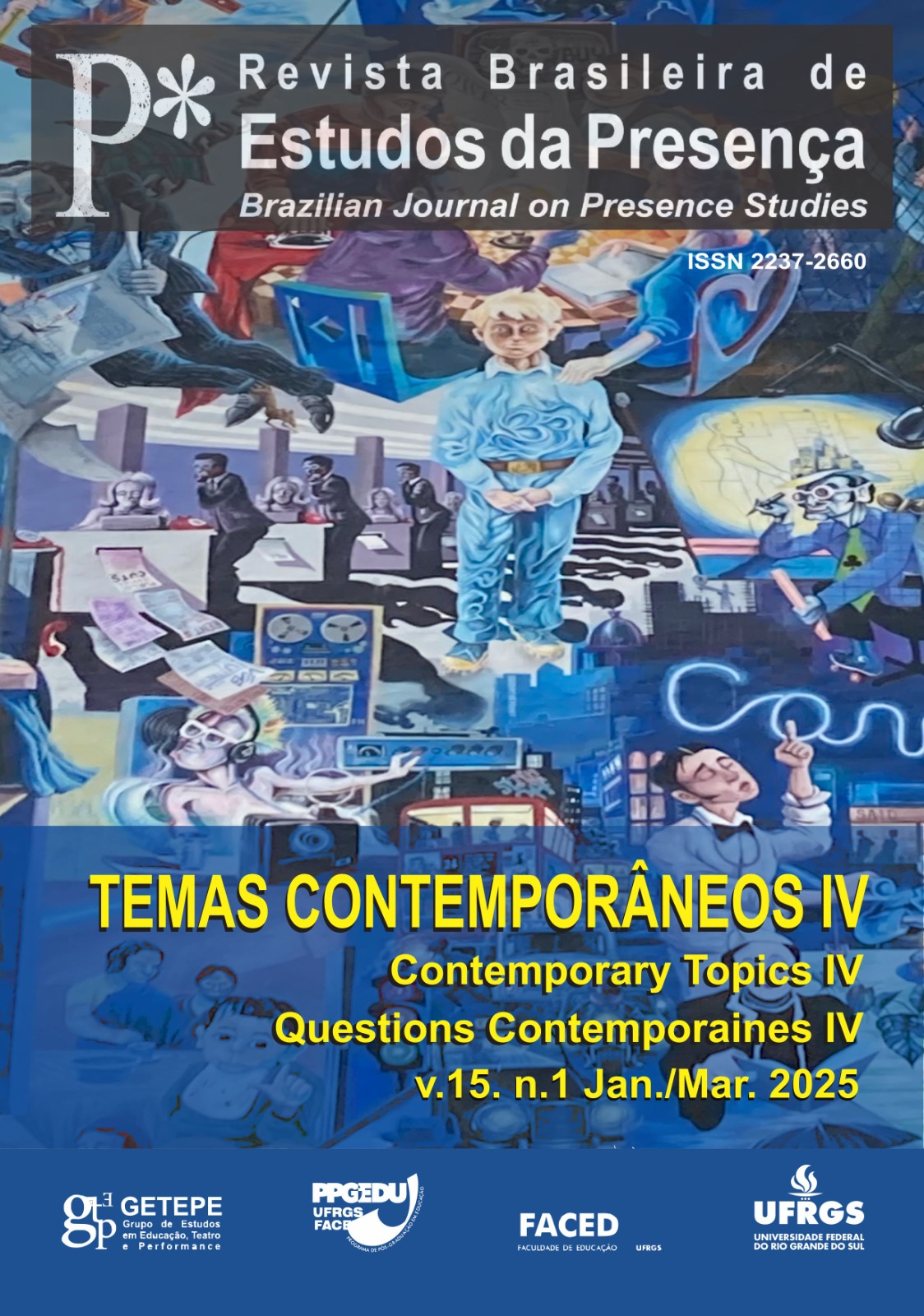A Linha que nos Divide:
o teatro negro racializando a branquitude
Keywords:
Decolonial art, whiteness, spectator, black theaterAbstract
A common factor among white people is the denial that they are racialized subjects, so that they use white fragility and innocence as strategies to protect and enjoy privilege and racial superiority. By the other hand, decolonial art is made up of a set of works that aim to separate the artistic production of non-Europeans and non-whites from a supposed position of inferiority based on coloniality. Thus, this research sought to understand how black theater, understood from this decolonial perspective, provides white Brazilian and Portuguese spectators with a racializing experience. The results allowed us to explore shared understandings about white identity, contributing to understanding the process of racialization of white spectators.
Downloads
Published
How to Cite
Issue
Section
License
Copyright (c) 2025 Brazilian Journal on Presence Studies

This work is licensed under a Creative Commons Attribution 4.0 International License.
Readers are free to transfer, print out and use the articles published in the Journal, as long as there is always explicit mention to the author(s) and to the Revista Brasileira de Estudos da Presença and as long as there is no alteration of the original work. Any other use of the texts needs to be approved by the author(s) and by the Journal. By submitting an article to the Revista Brasileira de Estudos da Presença and having it approved, the authors agree to assign, without compensation, the following rights to the Journal: the rights of first publication and the rights to redistribute the article and its metadata to the indexing and reference services that the editors deem appropriate.
 This journal use a Licença de Atribuição Creative Commons.
This journal use a Licença de Atribuição Creative Commons.

















